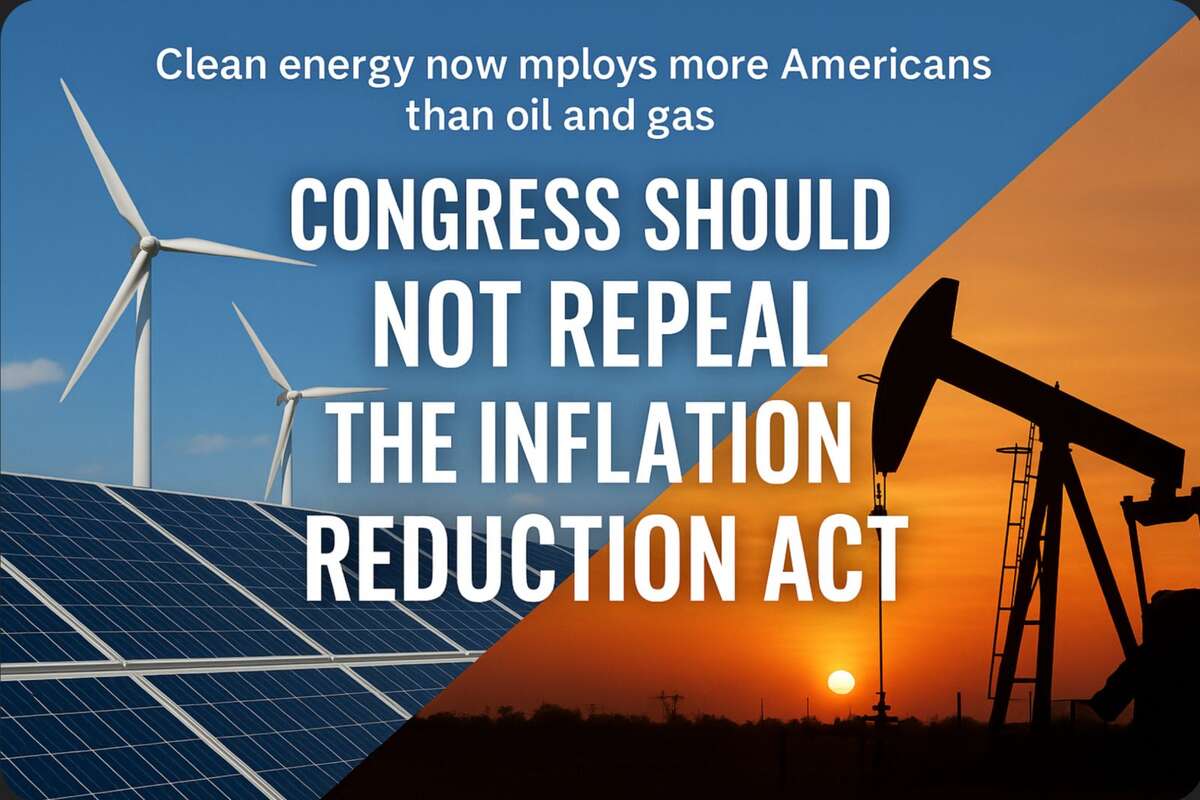As the global push toward sustainability accelerates, the economic influence of clean energy is growing significantly—both in terms of employment and tax revenue. While oil and gas continue to play a dominant fiscal role, clean energy has surpassed fossil fuels in direct job creation and is poised to generate increasing indirect tax revenue through employment and consumer activity.
Tax Revenue Overview
Oil and Gas Industry
The oil and gas industry remains a substantial contributor to U.S. federal and state tax revenues:
-
In Texas alone, the oil and natural gas industry contributed a record $27.3 billion in state and local taxes and royalties in fiscal year 2024.
-
Nationally, federal revenue from energy production on public lands and waters reached $16.4 billion in 2024, one of the top four years for such revenue since 1982.
-
Major oil corporations such as Exxon Mobil and Chevron collectively paid over $42 billion to foreign governments in taxes in 2023—more than their U.S. tax payments, reflecting the global nature of the industry.
Clean Energy Industry
Clean energy’s current direct tax contributions are modest due to substantial federal incentives aimed at stimulating growth:
-
The Inflation Reduction Act (IRA) of 2022 provides $437 billion in clean energy and climate-related incentives, including tax credits for renewable energy, clean vehicles, and energy storage.
-
For example, tax credits for hydrogen production are expected to generate $140 billion in revenue and create 700,000 jobs by 2030.
-
While these incentives reduce direct tax inflows today, they fuel long-term economic activity that boosts income, sales, and property tax revenue through job creation and capital investment.
Employment Impact and Indirect Tax Revenue
One of the most significant sources of tax revenue comes indirectly from individual income, sales, and property taxes generated by workers in each sector.
Clean Energy Employment
The clean energy sector has rapidly become a major employer:
-
As of early 2024, clean energy supported approximately 3.46 million U.S. jobs, including:
-
2.29 million in energy efficiency
-
560,000 in renewable energy (solar, wind, etc.)
-
410,000 in clean vehicle production
-
160,000 in grid modernization and energy storage
-
-
The sector grew 4.2% in 2023—more than double the national job growth rate.
Oil and Gas Employment
-
The oil and gas industry employed around 2.06 million people directly in 2024.
-
When including indirect and induced jobs (supply chain, services, retail), the industry supported approximately 22.6 million jobs.
The Risk of Repealing the Inflation Reduction Act
If Congress were to repeal or weaken the IRA, the clean energy sector would face serious setbacks. Key consequences include:
1. Loss of Investment
The IRA is expected to leverage over $3 trillion in private investment over the next decade. Without the Act, many projects—especially in hydrogen, solar, EVs, and battery storage—could become financially unviable, slashing anticipated growth.
2. Job Losses
Estimates suggest the IRA could support 9 million jobs over 10 years. Repealing it could:
-
Stall hiring in clean tech industries
-
Cause layoffs in factories already under construction
-
Slow job growth in high-potential regions like the Midwest and Southeast
3. Reduced Tax Revenue
Indirect tax revenue from clean energy workers—via income, property, and sales taxes—would decline as projects are delayed or canceled. Local communities expecting tax revenue from new clean tech factories and renewable installations could face budget shortfalls.
4. Strategic Setback
The IRA is a cornerstone of U.S. efforts to compete with China and the EU in clean technology. Weakening it would:
-
Erode U.S. manufacturing competitiveness
-
Push innovation and jobs overseas
-
Increase reliance on imported energy technology
5. Higher Health and Climate Costs
Without IRA-driven emissions cuts, the U.S. would likely:
-
Face more pollution-related illnesses and deaths
-
Incur greater costs from natural disasters, droughts, and flooding
-
Miss its 2030 emissions target, increasing the long-term fiscal burden on government and taxpayers
Recent House Legislation Targeting the IRA
In 2025, House Republicans introduced legislation aimed at dismantling key provisions of the IRA. These proposals include:
1. Repealing Clean Energy Tax Credits
The bills propose eliminating incentives for:
-
Electric vehicles (new, used, commercial)
-
Residential energy efficiency (e.g., rooftop solar)
-
Clean hydrogen production
-
Alternative fuel vehicle refueling infrastructure
This rollback could raise over $300 billion by 2034—but at the cost of future clean energy growth.
2. Accelerated Phase-Outs and Restrictions
-
Termination of key credits (e.g., clean electricity production, advanced manufacturing) by 2031
-
Repeal of credit transferability, reducing the financial flexibility for startups and developers
-
New restrictions excluding companies with ties to “foreign entities of concern,” potentially impacting supply chains
3. Economic and Industry Impacts
-
Clean energy jobs and investments are at risk, especially in rooftop solar, battery production, and hydrogen.
-
Energy bills could rise—studies estimate $1,000+ increases per household in some states.
-
Opposition has emerged even from some Republicans and fossil fuel companies now investing in clean tech.
Conclusion: A Shifting Balance at a Crossroads
While the oil and gas industry remains a fiscal heavyweight, the clean energy sector has overtaken it in direct job creation and is poised for substantial tax and economic contributions—if policies like the Inflation Reduction Act remain intact.
Repealing the IRA is a truly stupid policy direction. It not only has a devastating impact on our battle with climate change, but also has the opposite effect of reducing the national debt. It could stall the tremendous momentum, eliminate millions of potential jobs, weaken America’s energy independence, and shrink future tax bases. Conversely, maintaining and building upon it could ensure that the clean energy transition delivers not just environmental benefits, but durable economic growth and public revenue across the U.S.
If you agree, please consider contacting your Congressman to urge them to vote “nay” on the “Big Beautiful Bill”. Most Congressmen have online forms and you can find your rep’s contact information at House.gov.
Here’s a concise and persuasive message you can send to your congressman regarding the “Big Beautiful Bill” and its proposed repeal of the Inflation Reduction Act:
Subject: Oppose the “Big Beautiful Bill” – Protect Clean Energy and American Jobs
Dear [Congressman/Congresswoman] [Last Name],
As your constituent, I urge you to oppose the “Big Beautiful Bill” and any efforts to roll back the Inflation Reduction Act. This legislation is fueling American innovation, creating millions of clean energy jobs, and positioning the U.S. as a global leader in the energy transition.
Repealing key provisions—such as tax credits for electric vehicles, renewable energy, and clean manufacturing—would risk thousands of jobs in our state, increase household energy costs, and surrender our competitive edge to foreign nations.
Please stand with American workers, clean energy entrepreneurs, and future generations by voting no on any bill that dismantles the progress we’ve made under the IRA.
Sincerely,
[Your Full Name]
[Your Street Address]
[City, State, ZIP]
[Email Address]
[Phone Number (optional)]














